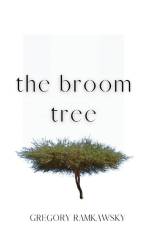av Gregory Ramkawsky
251
The broom tree may be identified as a place of hope, provision, providence, sustenance, growth, faith, and calling. The broom tree may also be identified as a place of fear, doubt, despair, depression, anxiety, hiding, running, failure, uncertainty, loneliness, suffering, loss, struggle, and even confrontation. The broom tree may be some or most or all or one or a few or none of these things. For Elijah the prophet, it was the collision of them all. The broom tree was the end, and also the beginning. It was both burial plot and birthplace, both failure and freedom. It was a place of getting beyond the self-image, beyond the projection. It was a place of nakedness, a place of surrender, a place of examining actions, weighing frailty; a place where Elijah weighed himself on the scales of God and found himself wanting. The broom tree is a place I am, a place I thought I was, a place I hate, a place I love, a place I wish I never had to come to and a place I don't wish to leave. The Broom Tree dares to challenge, "Where will you find shade in the desert?"

